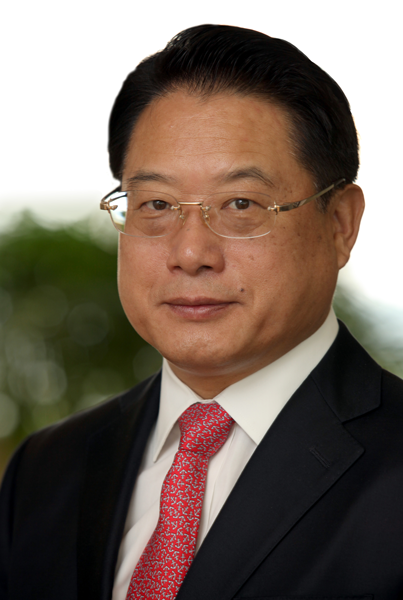UNIDO’s mandate is to promote inclusive and sustainable industrial development in our Member States. Over the decades, industrial development has proven to play a key role in development, and in particular in poverty reduction through the generation of income-earning opportunities. Industrial development that is sustainable and inclusive also holds the potential to address environmental and climate change issues. At UNIDO, we strongly believe that the realization of SDG 9 of the 2030 Agenda for Sustainable Development will have positive spillovers on the attainment of the other SDG’s.
The future of manufacturing and the evolving industrialization process is undergoing a change, particularly during this era of the Fourth Industrial Revolution (4IR). UNIDO foresaw these changes - in 2016, our Industrial Development Report estimated that benefits arising from cutting-edge technologies would be between 16 and 35 US dollars per year by 2025. To ensure smooth transformation to 4IR, it is imperative that Member States foster technological learning, innovation and entrepreneurship – especially among youth and women. This is confirmed by the findings from our Industrial Development Report 2020 indicating that when the right capabilities are in place, new technologies offer huge potential to advance economic growth and human well-being and to safeguard the environment.
UNIDO is actively engaged in supporting entrepreneurship development in our Member States. Among the many ongoing entrepreneurial activities, a key initiative that has had tangible results is our Entrepreneurship Curriculum Programme (ECP). Through this programme, UNIDO assists authorities in developing their own curriculum with syllabus, teachers’ guides, textbooks, monitoring and evaluation tools, assessment guidelines, training ECP teachers, piloting and ultimately embarking on a nationwide rollout of an entrepreneurship curriculum with the full involvement of the national authorities.
The ECP supports inclusivity by engaging with girls and boys in rural and urban areas. Entrepreneurship is included as a general subject in secondary, technical or vocational schools on a nationwide basis. Universities and colleges serve as centres of excellence to support national efforts to promote entrepreneurship and technology absorbing capacities.
The ECP empowers youth to acquire personal qualities such as self-confidence, innovation and creativity, the ability to take initiatives, as well as the willingness to take calculated risks and to collaborate. These competencies help them select and shape their career path as employees or entrepreneurs.
Gender Empowerment and Equality is an important component in our work. Our efforts in this area is guided by our “Strategy for Gender Equality and the Empowerment of Women: 2020–2023” that systematically helps us to plan, steer, deliver and report more effectively on progress towards its gender equality commitments at the global, regional, national and organizational levels.
UNIDO stands ready to support the role of entrepreneurship to drive towards the vision that we want as envisaged in the 2030 Agenda for Sustainable Development.
LI Yong, Director General of the United Nations Industrial Development Organization (UNIDO), has had an extensive career as a senior economic and financial policy-maker. As Vice-Minister of Finance of the People’s Republic of China and member of the Monetary Policy Committee of the Central Bank for a decade, Mr. Li was involved in setting and harmonizing fiscal, monetary and industrial policies, and in supporting sound economic growth in China. He pushed forward financial sector reform, and prompted major financial institutions to establish corporate governance, deal with toxic assets and strengthen risk management. Mr. Li gave great importance to fiscal and financial measures in favor of agricultural development and SMEs, the cornerstones for creating economic opportunities, reducing poverty and promoting gender equality. He played a key role in China’s cooperation with multilateral development organizations, such as the World Bank Group and the Asian Development Bank.


